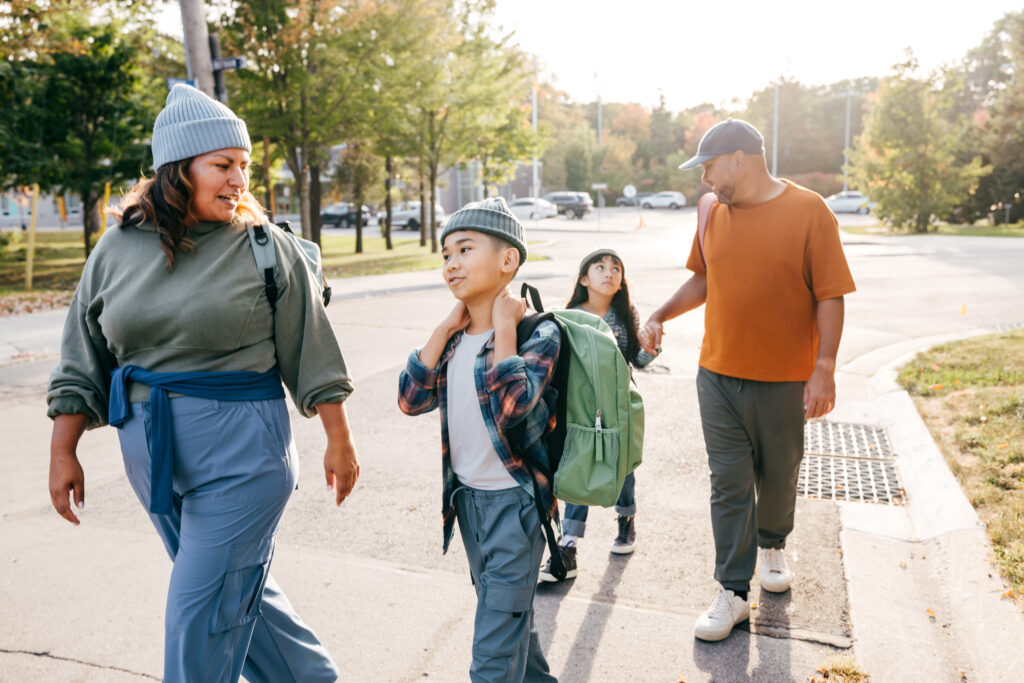
The end of summer and back to school season brings with it a series of mixed emotions. Kids and parents alike are feeling a sense of sadness that the freedom of summer is over and excitement and nervousness for the start of the new school year.
Tips for a smooth transition
It can be a hard transition for everyone, but here are some ideas to help make the process go more smoothly.
-
Create structure and schedule
Most of us like to know ahead of time what our work/school day will look like. Research shows that when kids know what to expect, they feel safer and more secure. Create routines for the school day, so your child can mentally and physically prepare for the day. For younger kids, it can be a poster in the kitchen. For older kids you can share the calendar with them on their phones.
-
Test run
Most schools offer a tour or back to school day. Make sure your kids have a chance to participate in these experiences so they can familiarize themselves with the school. If they are riding the bus, walk them to the bus stop and help them figure out what time to leave to catch it. Plan a drop off and pick up spot if you’re driving them.
-
Sleep habits
Most kids’ sleep schedules get thrown off during the summer time. Later bedtimes and sleeping in might work when school is out but can wreak havoc once school starts. Kids need 8-10 hours of sleep a night, but most adolescents get less than that. Changing sleep schedules on the weekends can also have negative consequences. Research shows that sleep deficits can not be restored by going to bed later and waking up later. These sleep deficits can lead to lower academic performance and increase risky behaviors.
-
Rituals of connection
There are small moments throughout the day that provide opportunities for connecting with your child. These are what Dr. John Gottman calls Rituals of Connection. Maybe it is your good morning routine, how you say goodbye, a note in a lunch box, a debrief after school, or some time after dinner where you take the dog for a walk. Building in regular, consistent and intentional times to connect will help your child feel more connected to you and to the people around them. Other benefits include less emotional distress, longer attention spans and increased self esteem. Remember the small moments add up!
-
Small things often
This concept taken from what successful couples do can easily be translated into parenting. It is really about the little things versus grand gestures that make a relationship strong and healthy. Here are some examples:
- Be curious: Your child’s love maps change too. Ask questions about their likes/dislikes, views of the world, etc. It is a time for you to just listen.
- Turn towards your child. As they get older the bids will be less frequent and not so obvious, so it is important to be on the lookout for them!
- Positive perspective: Watch for your child to do something you’re proud of and tell them.
- Repair: When a negative interaction occurs, that’s ok! It is an opportunity to go back to your child, acknowledge what happened and take responsibility for your part in it.
Final thoughts
The back to school season can be stressful for families, but using these research-back tips can help ease the transition. Use the season as an opportunity to create new rituals with your children and as a family. Self care is also important during this time. Ensuring that you are taking care of your physical and mental health is important and will teach your child healthy habits. Using tools like meditation, mindfulness or taking walks can reduce your stress during this time and contribute to your overall wellbeing.








Recent Comments